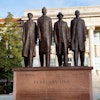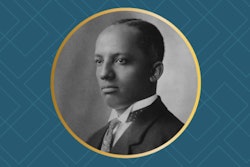The exclusion and omission of Black history threatens to harm not just the Black community at large but also students and the very future of the nation, experts said during a Nov. 14 panel. Janel George
Janel George
The panel – part of the Congressional Black Caucus Foundation’s larger National Racial Equity Initiative for Social Justice (NREI) Summit – brought together experts to discuss contemporary attacks against the inclusion of Black history in societal awareness and education.
The discussion was moderated by Dr. Marcia Vandiver, associate professor of elementary education at Towson University.
“Today, many state leaders have increasingly advocated for the banning of African American studies and have proposed curriculum changes that downplay the significance of slavery in the U.S.,” the NREI website stated. “Across the nation, 23 states have introduced legislation to ban the discussion of ‘divisive’ concepts, including issues related to race and gender. In the face of curriculum and book bans and the devaluing of Black history, it is imperative to amplify and uphold African American history.”
This denial of Black history and contributions is not new, said panelist Janel George, a law professor and founding director of the Racial Equity in Education Law and Policy Clinic at Georgetown University. Such erasure has occurred repeatedly throughout American history and provides justification for mistreatment and racial stratification, she said.
Attempts are also being made by conservative activists, such as Christopher Rufo, to villainize and weaponize concepts such as critical race theory (CRT) and wokeness, make them “toxic,” and conflate them with Blackness, she said.
"These people who are pushing this agenda, they don't care about what CRT is, what it actually means, what 'woke' is, what 'woke' means,” George said. “They just want people to equate it with Blackness."





















